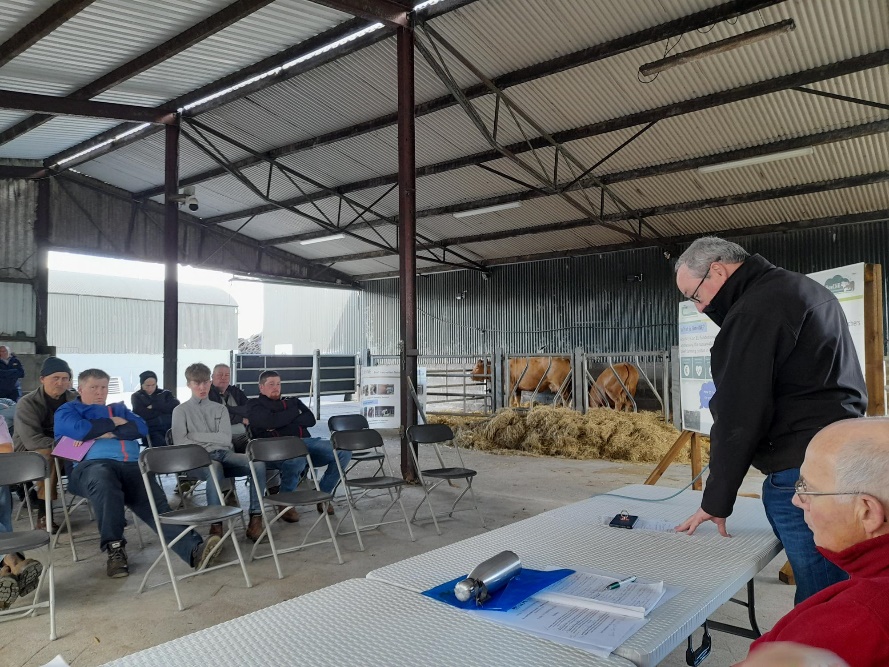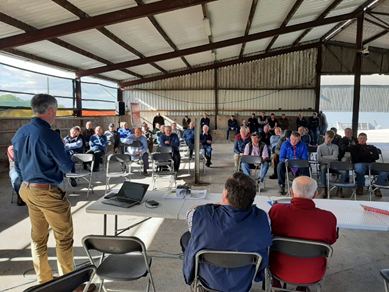Author: Richard Lynch – Teagasc (Richard.lynch@teagasc.ie)
A demonstration of standardized procedures for bull evaluation was held on 16th September, on the demonstration farm of the Irish Farmers Journal, which is a suckler beef and fattening farm located in the Irish midlands. The group in attendance was circa 60 farmer members of the IFA Offaly branch, representatives from Bord Bia and the Irish Farmers Journal.

Kevin Kinsella, the BovINE Irish Network Manager, presented the framework of the BovINE project including the process for identifying the Grass roots needs of beef farmers and the collection of solutions form good practices on farms and from research findings. He also spoke of the purpose of the demonstration as a means to test the feasibility of a solution in a different farming context.
Richard Lynch then presented the solution of evaluating a bull prior to breeding to ensure reproductive success. He highlighted the solution as a method to optimize the number of calves per cow per year in suckler beef herds, a grass root need prioritised in the BovINE project. Richard explained the three main checks that should be carried out on a bull pre-breeding; a muscular-skeletal check to ensure that the bull is physically capable of breeding, a seminal check for sperm quality and a blood test for infectious diseases. 
In relation to the benefits noted after presenting the demonstration, farmers understood the potential value of evaluating the breeding bull prior to breeding season in preventing any delays in the calving pattern for suckler beef herds. It was stated that some of the checks such as visual assessment of muscular skeletal structure and scrotum circumference can easily be checked by the farmer themselves. On the other hand, the cost of a veterinary examination of seminal quality may be a barrier to adoption.
One farmer indicated that he had encountered a significant issue with an infertile bull in the past which resulted in a delay in his cows going into calf, consequently, it resulted in less calves for sale from that particular year. The farmer also indicated that he now undertakes a breeding assessment prior to breeding each year, as the benefit of undertaking this far outweighs the potential effects on farm output should a problem occur.
On-farm demonstrations were also carried out in France and Spain.
Links to the innovation on BKH:
Link to the presentation: https://drive.google.com/file/d/1N5453FbNTHzTs40ldOSjVC8pNFXBA478/view?usp=sharing